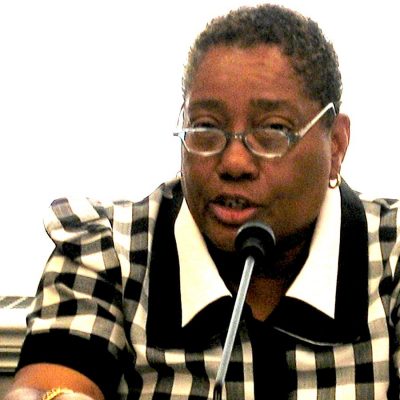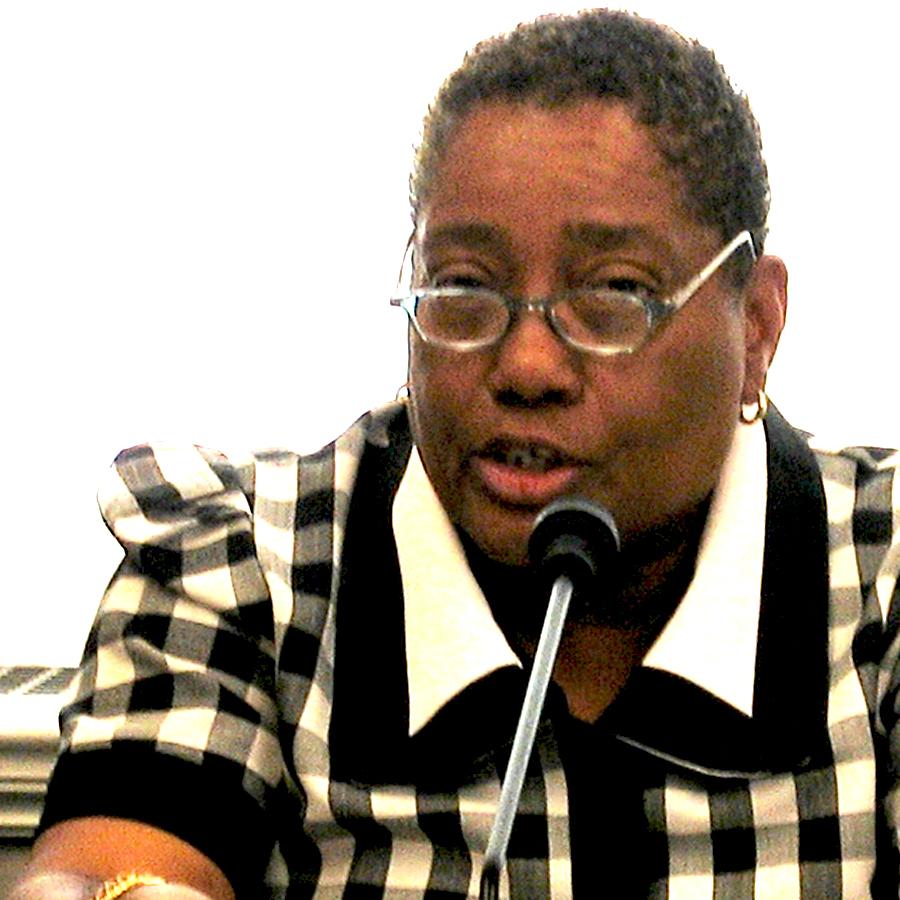 Note: This is the written testimony of Joycelyn Gill-Campbell, a witness in a May 12 ad-hoc hearing supported by the Congressional Progressive Caucus. The event was convened by the Institute for Policy Studies and the Inter Alliance Dialogue, a coalition of human rights organizations, to amplify the voices of those most hurt by the economic crisis.
Note: This is the written testimony of Joycelyn Gill-Campbell, a witness in a May 12 ad-hoc hearing supported by the Congressional Progressive Caucus. The event was convened by the Institute for Policy Studies and the Inter Alliance Dialogue, a coalition of human rights organizations, to amplify the voices of those most hurt by the economic crisis.
Good morning ladies and gentlemen, my name is Joycelyn Gill-Campbell. I am a proud member of Domestic Workers United, an organization made up of nannies, housekeepers and elderly caregivers organizing to build power, gain respect, fair labor standards and to help change working conditions for all. We are part of the National Domestic Workers Alliance, representing 15 organizations in 10 cities nationally.
This industry is an enormous workforce of over 2 million, mostly women of color who come to this country because the economic policies around the world force us abroad to work to support our families. Globalization has hurt us; our countries are forced to cut services, close down factories and farms. There is no work; those who are responsible for taking care of their families end up here in the U.S. taking jobs in the domestic industry. There are over 200,000 women of color employed in this industry in New York, and despite the important work we do to provide critical care for professional families, we are treated less than real workers and are vulnerable to some of the worst abuses you can imagine.
We conducted a survey of New York domestic workers from 2003-2004. The survey results show they often stay in a workplace for years, yet most domestic workers earn low wages, with 8% earning below minimum wage and 18% living below the poverty line. Only 13% earn a wage that is livable, despite the fact that 59% are their family’s primary income earner. One in five report sometimes or often not having enough to eat. Workers work overtime — often more than 50-60 hours a week — but 67% of workers don’t receive overtime pay for overtime hours worked. Nearly one in five workers is not paid on time, while in one in twenty is not paid at all. Less than half of workers receive basic workplace benefits such as regular raises and paid sick days. One-third of all domestic workers and one-half of live-in domestic workers experience verbal or physical abuse.
This was before the economic crisis hit.
We have no defense against the cruelty of this crisis. No safety net, no notice of termination, no severance pay, and no access to unemployment. Workers are being laid off in unprecedented numbers and we are not counted in the unemployment statistics. How will you understand the scope of the problem, when such large workforces are not counted? The fear of losing their jobs is silencing workers who are facing abuse and exploitation. They are so afraid of losing their jobs that they are accepting worse and worse conditions. This is driving down conditions for everyone.
I was a member of DWU for some seven years and a nanny for many more years before becoming a full-time organizer. While working in this industry, I have seen and experienced the abuse myself. As members of Domestic Workers United, we know that we need laws to protect us against exploitation and we also need to change the global economic system that forces us into these exploitative positions, leaving our homelands and families to survive. Now the pressure on us is even greater, as our families abroad also feel the effects of the crisis.
In New York, we have developed a solution that can serve as a national model. We are campaigning for the Domestic Workers Bill of Rights in New York State. This bill is proposed legislation that seeks to address the historic exclusion and discrimination against domestic workers in the labor law. In this bill we are asking for notice, severance pay, an annual wage increase, paid vacation, sickness benefits, personal days, severance, paid public holidays, protection from unfair firing and discrimination. We know that this bill will not alleviate all the problems workers face, but we know it will bring equality to an industry which has suffered and long been ignored. It can also serve as a model for the type of innovative policy we can develop to protect the most vulnerable and support sustainability for all of the workers in this country.
In fact, there are several groups of workers who are excluded from the labor laws — which means that there is no line of defense against the cruel impact of this crisis — no right to organize and no legal protections. Farm workers, guest workers, and black workers in the South remain excluded from the right to organize.
Major labor law reform to establish basic protections for excluded workers, like our Domestic Workers Bill of Rights in New York and labor laws to make it easier for workers to join a union, like the Employee Free Choice Act, are needed to ensure a real recovery for all working people.
And we urge the Department of Labor to enact reforms to address the special conditions and vulnerability of workers excluded from the labor laws, particularly in the wake of the economic crisis.
Thank you for your time and attention.
